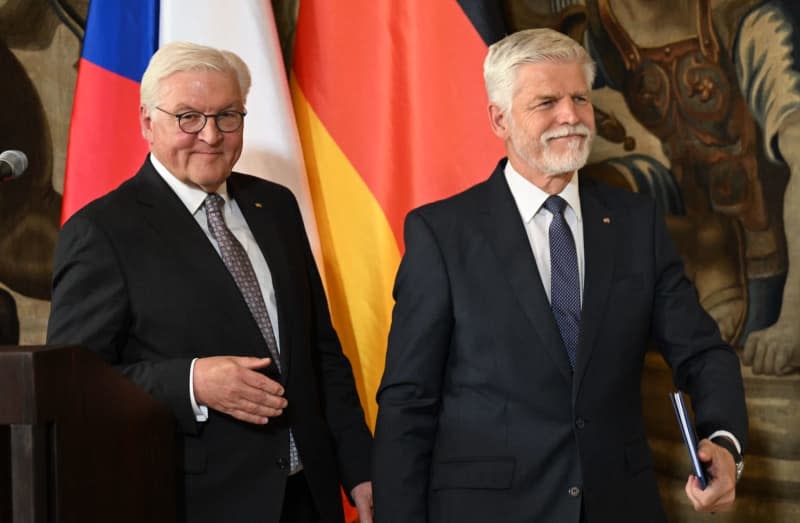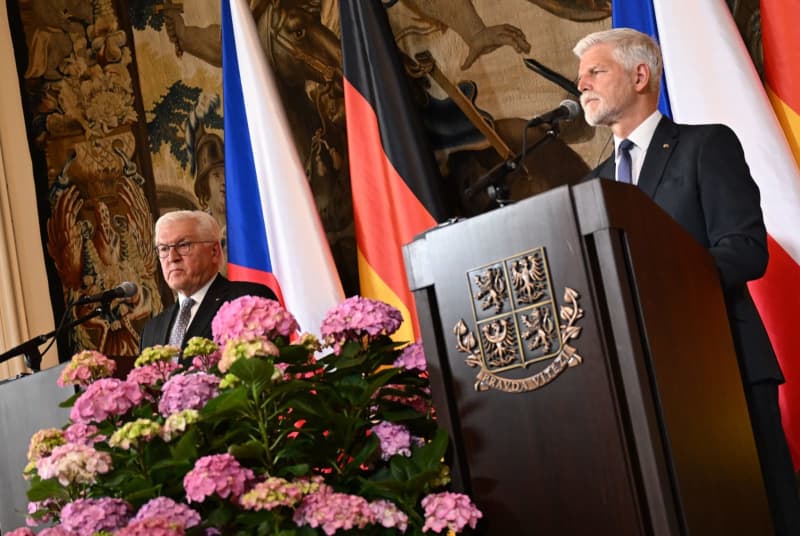The Czech Republic has signalled its support for new rounds of European Union enlargement, as the country prepares to mark 20 years since its own accession to the bloc.
Enlargement is a “geostrategic necessity,” said Czech President Petr Pavel at a press conference in Prague, together with German President Frank-Walter Steinmeier at a conference on the accession of the Czech Republic and nine other states to the EU 20 years ago.
“If we leave the Western Balkan states, Ukraine, Moldova and Georgia on the doorstep for too long, we will leave them at the mercy of actors like Russia, who do not mean well by Europeans and Europe at all,” warned Pavel, a former chairman of the NATO Military Committee.
“These countries want to belong to the West,” said Czech Prime Minister Petr Fiala on Tuesday. “Let’s give them this chance and make the most of the opportunities offered by enlargement,” he added.
Pavel called on candidate countries to prepare seriously for future accession. The Czech Republic could help prospective members by sharing its own experience, he said.
The president also pressed for EU reforms, saying the union could “definitely” improve.
On May 1, 2004, the Czech Republic, Poland, Slovakia and seven other states joined the European Union in what Pavel greeted as a “milestone.”
“Our home is not just the Czech Republic, but Europe,” Pavel said.
Six countries in the Western Balkans – Albania, Bosnia-Herzegovina, Kosovo, North Macedonia, Montenegro and Serbia – are currently seeking to join the EU and have achieved varying levels of progress towards membership.
Former Soviet republics Ukraine, Moldova and Georgia are also candidates, while EU negotiations with Turkey are currently frozen.
Earlier, Steinmeier called for a defence of democracy in the European Union ahead of the EU parliamentary elections in June.
“Within our European Union, fundamental democratic values, indeed the European project, are being called into question by irresponsible populists,” Steinmeier said.
“Let us realize what is at stake, especially now,” he said. Once democracy has been achieved, it is not guaranteed for eternity, the president added.
“We know that the strength of liberal democracy, its tolerance, is also its most vulnerable point. And we know that we must defend ourselves and act defensively when those who despise democracy use this tolerance to attack it.”
Today, the Czech Republic and Germany have every reason to celebrate this accession 20 years ago, Steinmeier said, referring to the former Eastern Bloc states of Estonia, Latvia, Lithuania, Slovenia, Slovakia, the Czech Republic, Hungary and Poland as well as Malta and Cyprus, which joined the European Union in 2004 in the largest enlargement in the history of the EU.
“We have all benefited from this step – not only economically, but above all as neighbours. And this success story will continue to be written.”
The president pointed out that the Czech Republic had not introduced the euro and said the Czech Republic would have to decide for itself whether it wants to introduce the currency. “But my message is: if the Czech people decide to do so one day, you would all be very welcome in the eurozone.”

